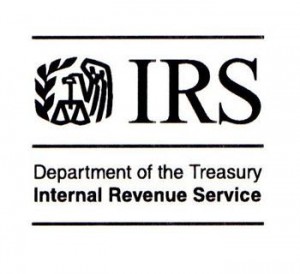 In a case that has obvious implications for employee benefit plans, the Veterans’ Administration (“VA”) has just provided survivor benefits to the partner of a service member, even though the partners were not married before the service member’s death.
In a case that has obvious implications for employee benefit plans, the Veterans’ Administration (“VA”) has just provided survivor benefits to the partner of a service member, even though the partners were not married before the service member’s death.
Tag Archives: DOMA
Domestic Partnership Converted Retroactively to Marriage After Death Provides Basis for Spousal Benefits
State Taxes for Married Same-Sex Couples
(Posted on June 26, 2015 by Carol V. Calhoun)
 In light of the Supreme Court decision in Obergefell v. Hodges, employers that maintain plans covering employees in same-sex marriages who live in any of the states that previously did not recognize same-sex marriage will have to adjust state tax withholding and reporting for such employees. State Taxes and Married Same-Sex Couples Before Obergefell provides a handy chart for determining which states are affected.
In light of the Supreme Court decision in Obergefell v. Hodges, employers that maintain plans covering employees in same-sex marriages who live in any of the states that previously did not recognize same-sex marriage will have to adjust state tax withholding and reporting for such employees. State Taxes and Married Same-Sex Couples Before Obergefell provides a handy chart for determining which states are affected.
EEOC: Discrimination based on sexual orientation or transgender status is prohibited sex discrimination
(Posted on May 12, 2015 by Carol V. Calhoun)
 Federal law contains provisions forbidding discrimination based on several classifications: race, sex, veteran status, etc. However, no federal law explicitly prohibits discrimination based on sexual orientation or transgender status. As a result, many employers in states which do not have their own legislation barring discrimination based on sexual orientation or transgender status have assumed that no laws prohibited such discrimination.
Federal law contains provisions forbidding discrimination based on several classifications: race, sex, veteran status, etc. However, no federal law explicitly prohibits discrimination based on sexual orientation or transgender status. As a result, many employers in states which do not have their own legislation barring discrimination based on sexual orientation or transgender status have assumed that no laws prohibited such discrimination.
The Equal Employment Opportunity Commission (“EEOC”) has now called this assumption into question, by bringing several lawsuits treating discrimination based on sexual orientation or transgender status as a form of sex discrimination prohibited by Title VII of the Civil Rights Act of 1964. This issue is a focus of the EEOC’s Strategic Enforcement Plan for 2013-2016. Read more.
Family & Medical Leave Act regulations protect same-sex spouses, regardless of domicile
(Posted on February 23, 2015 by Carol V. Calhoun)
 Immediately after the Supreme Court’s decision in United States v. Windsor, the Department of Labor announced that for purposes of the spousal protections of the Family and Medical Leave Act of 1993 (FMLA), it would recognize a same-sex marriage only if it was legal in the jurisdiction of the couple’s domicile. It has now reversed that position, issuing final regulations which recognize a marriage a) within the United States, if it was valid in the state in which it took place, and b) outside of the United States, if it was valid in the jurisdiction in which it took place and if it could have been entered into in at least one state. The effective date for the final rule was March 27, 2015.
Immediately after the Supreme Court’s decision in United States v. Windsor, the Department of Labor announced that for purposes of the spousal protections of the Family and Medical Leave Act of 1993 (FMLA), it would recognize a same-sex marriage only if it was legal in the jurisdiction of the couple’s domicile. It has now reversed that position, issuing final regulations which recognize a marriage a) within the United States, if it was valid in the state in which it took place, and b) outside of the United States, if it was valid in the jurisdiction in which it took place and if it could have been entered into in at least one state. The effective date for the final rule was March 27, 2015.
Update (June 26, 2015): This rule is in line with the Supreme Court decision in Obergefell v. Hodges, which has now recognized same-sex marriages nationwide.
Employee Benefits Effects of Treasury, IRS and Department of Labor Announcements That All Legal Same-Sex Marriages Will Be Recognized For Federal Tax Purposes
(Posted on February 23, 2015 by Carol V. Calhoun)
 This post was updated on June 26, 2015 to reflect the Supreme Court’s decision in Obergefell v. Hodges, which struck down all state bans on same-sex marriage.
This post was updated on June 26, 2015 to reflect the Supreme Court’s decision in Obergefell v. Hodges, which struck down all state bans on same-sex marriage.
The Treasury Department and the IRS announced on August 29, 2013 that all legal same-sex marriages will be recognized for federal tax purposes. On September 18, 2013, the Department of Labor took the same position for purposes of the Employee Retirement Income Security Act of 1974 (“ERISA“). The announcements and corresponding revenue ruling
Because employee benefit plans are extensively regulated by federal law, this announcement means that all employers will be required to recognize such marriages for many employee benefits purposes. Conversely, employers in states that treat civil unions or domestic partnerships as if they were marriages will nevertheless be forbidden from treating such arrangements as marriages for certain employee benefits purposes. However, the precise impact will depend on whether the plan is subject to ERISA or whether it is a governmental or church plan exempt from ERISA. The chart below sets forth areas in which the announcement will affect the operation of different types of plans.
NPR Interview, “State Tax Laws ‘A Mess,’ For Same Sex-Couples and Employers.”
(Posted on March 19, 2014 by Carol V. Calhoun)
 Carol V. Calhoun was interviewed for a piece on National Public Radio’s “Here and Now” program called, “State Tax Laws ‘A Mess,’ For Same Sex-Couples and Employers,” which aired today. You can listen to the segment at this link, a summary and transcript can be found here, and the chart referenced in the story is available at this link..
Carol V. Calhoun was interviewed for a piece on National Public Radio’s “Here and Now” program called, “State Tax Laws ‘A Mess,’ For Same Sex-Couples and Employers,” which aired today. You can listen to the segment at this link, a summary and transcript can be found here, and the chart referenced in the story is available at this link..
New article: State Taxes and Married Same-Sex Couples
(Posted on March 7, 2014 by Carol V. Calhoun)
 >Carol V. Calhoun‘s article, “State Taxes and Married Same-Sex Couples,” has now been published in Baltimore OUTloud. This article discusses the different approaches that each of the states has taken for state tax purposes, in the wake of the federal government’s decision to treat same-sex married couples are married for federal tax purposes.
>Carol V. Calhoun‘s article, “State Taxes and Married Same-Sex Couples,” has now been published in Baltimore OUTloud. This article discusses the different approaches that each of the states has taken for state tax purposes, in the wake of the federal government’s decision to treat same-sex married couples are married for federal tax purposes.
Cafeteria Plans Need to Move Fast to Take Advantage of Year-End IRS Guidance
(Posted on December 16, 2013 by Carol V. Calhoun)
 On June 26, 2013, the Supreme Court issued the Windsor decision, striking down a provision in the federal Defense of Marriage Act which had precluded recognition of same-sex marriages. In September, the Internal Revenue Service (“IRS”) announced that same-sex couples legally married in a state that recognized such marriages would now be treated as married for purposes of federal taxation, regardless of whether their marriages were recognized by their state of residence. The IRS announcement was made retroactive, meaning that such marriages will be recognized back to their inception.
On June 26, 2013, the Supreme Court issued the Windsor decision, striking down a provision in the federal Defense of Marriage Act which had precluded recognition of same-sex marriages. In September, the Internal Revenue Service (“IRS”) announced that same-sex couples legally married in a state that recognized such marriages would now be treated as married for purposes of federal taxation, regardless of whether their marriages were recognized by their state of residence. The IRS announcement was made retroactive, meaning that such marriages will be recognized back to their inception.
The IRS has issued Notice 2014-1, which provides guidance on the application of the new rules to cafeteria plans. However, in many instances employers will need to move quickly to take advantage of relief granted.
Businesses Denied State Income Tax Deductions for Fringe Benefits for Same-Sex Spouses
(Posted on December 4, 2013 by Carol V. Calhoun)

As discussed in the chart, “State Taxes and Married Same-Sex Couples,” most states that do not recognize same-sex marriage are requiring same-sex married couples to file their tax returns as single (or head of household, if they qualify for that status). However, Virginia has now gone further, denying certain Virginia businesses state income tax deductions for fringe benefits they provide to same-sex spouses. As discussed below, the language used is muddy, and the holding is probably considerably less broad than it appears. However, businesses in Virginia need to be aware of its potential effect on them. And to the extent that other states take the same route, businesses in states other than Virginia would also be affected.
New article: Supreme Court Same-Sex Marriage Decisions Create New Rules for Employee Benefit Plans
(Posted on October 4, 2013 by Carol V. Calhoun)
 Carol V. Calhoun‘s article, “Supreme Court Same-Sex Marriage Decisions Create New Rules for Employee Benefit Plans,” has now been published in Baltimore OUTloud. The article discusses the effect of the Supreme Court’s decisions regarding the Defense of Marriage Act and the subsequent guidance by the Internal Revenue Service and the Department of Labor on employee benefit plans.
Carol V. Calhoun‘s article, “Supreme Court Same-Sex Marriage Decisions Create New Rules for Employee Benefit Plans,” has now been published in Baltimore OUTloud. The article discusses the effect of the Supreme Court’s decisions regarding the Defense of Marriage Act and the subsequent guidance by the Internal Revenue Service and the Department of Labor on employee benefit plans.
